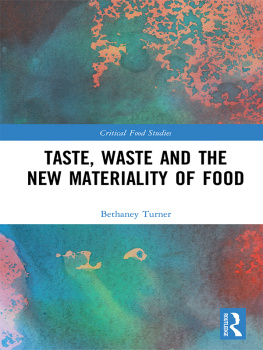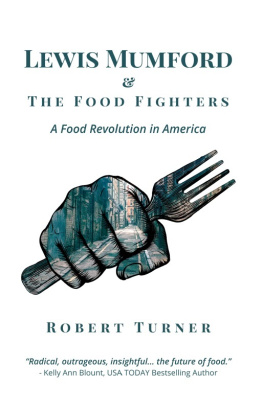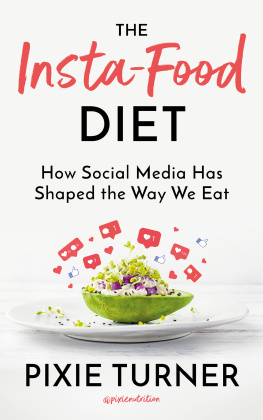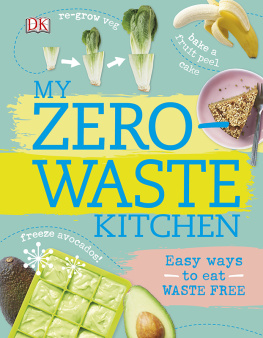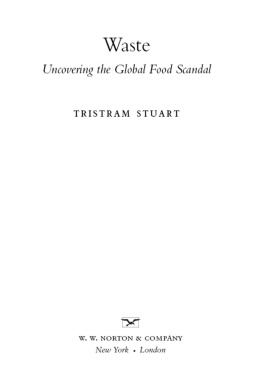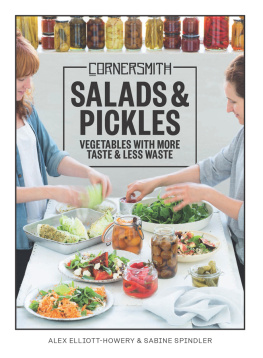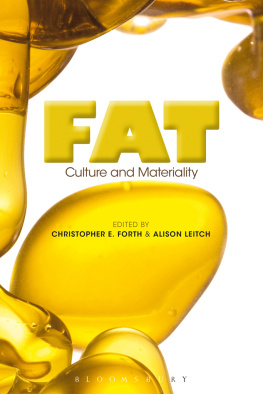Taste, Waste and the New Materiality of Food
Anthropocentric thinking produces fractured ecological perspectives that can perpetuate destructive, wasteful behaviours. Learning to recognise the entangled nature of our everyday relationships with food can encourage ethical ecological thinking and lay the foundations for more sustainable lifestyles.
This book analyses ethnographic data gathered from participants in Alternative Food Networks from farmers markets to community gardens, agricultural shows and food redistribution services. Drawing on theoretical insights from political ecology, eco-feminism, ecological humanities, human geography and critical food studies, the author demonstrates the sticky and enduring nature of anthropocentric discourses. Chapters in this book experiment with alternative grammars to support and amplify ecologically attuned practices of human and more-than-human togetherness. In times of increasing climate variability, this book calls for alternative ontologies and world-making practices centred on food which encourage agility and adaptability and are shown to be enacted through playful tinkering guided by an ethic of convivial dignity.
This innovative book offers a valuable insight into food networks and sustainability which will be useful core reading for courses focusing on critical food studies, food ecology and environmental studies.
Bethaney Turner is an Assistant Professor in Faculty of Arts and Design at the University of Canberra, Australia. Her interdisciplinary research explores how more sustainable urban living behaviours can be developed and fostered in a time of human-induced climate change.
Critical Food Studies
Series editor: Michael K. Goodman
University of Reading, UK
The study of food has seldom been more pressing or prescient. From the intensifying globalisation of food, a world-wide food crisis and the continuing inequalities of its production and consumption, to food's exploding media presence and its growing re-connections to places and people through 'alternative food movements', this series promotes critical explorations of contemporary food cultures and politics. Building on previous but disparate scholarship, its overall aims are to develop innovative and theoretical lenses and empirical material in order to contribute tobut also begin to more fully delineatethe confines and confluences of an agenda of critical food research and writing.
Of particular concern are original theoretical and empirical treatments of the materialisations of food politics, meanings and representations, the shifting political economies and ecologies of food production and consumption and the growing transgressions between alternative and corporatist food networks.
Practising Empowerment in Post-Apartheid South Africa
Wine, Ethics and Development
Agatha Herman
Digital Food Activism
Edited by Tanja Schneider, Karin Eli, Catherine Dolan and Stanley Ulijaszek
Children, Food and Nature
Organising Meals in Schools
Mara Miele and Monica Truninger
Taste, Waste and the New Materiality of Food
Bethaney Turner
For a full list of titles in this series, please visit: www.routledge.com/Critical-Food-Studies/book-series/CFS
First published 2019
by Routledge
2 Park Square, Milton Park, Abingdon, Oxon OX14 4RN
and by Routledge
52 Vanderbilt Avenue, New York, NY 10017
Routledge is an imprint of the Taylor & Francis Group, an informa business
2019 Bethaney Turner
The right of Bethaney Turner to be identified as author of this work has been asserted by her in accordance with sections 77 and 78 of the Copyright, Designs and Patents Act 1988.
All rights reserved. No part of this book may be reprinted or reproduced or utilised in any form or by any electronic, mechanical, or other means, now known or hereafter invented, including photocopying and recording, or in any information storage or retrieval system, without permission in writing from the publishers.
Trademark notice: Product or corporate names may be trademarks or registered trademarks and are used only for identification and explanation without intent to infringe.
British Library Cataloguing-in-Publication Data
A catalogue record for this book is available from the British Library
Library of Congress Cataloging-in-Publication Data
A catalog record has been requested for this book
ISBN: 978-1-472-48754-4 (hbk)
ISBN: 978-0-429-42450-2 (ebk)
This book would not have been possible without the generosity of the gardeners, agricultural show exhibitors and Alternative Food Network shoppers who invited me and my fellow researchers into their homes and gardens. The participants willingness to share their time, produce and stories with me made this research such a joyful experience. My colleagues Joanna Henryks, Cathy Hope, George Main and Kirsten Wehner played key roles in some of the research projects that fuelled the ideas and arguments developed throughout this text. I extend my thanks to them for stimulating my thinking. I also need to express my gratitude to my very efficient Research Assistants, Nic Mikhailovich and Li Nguyen, who worked diligently on these projects at times when I was swamped by other commitments. Thanks must also go to Sue North and Nick Potter for their willingness to cast a critical eye over the work. Mike Goodman has been a patient and supportive series editor and it is a great honour to be able to contribute to the body of work developed in the Critical Food Studies series. Small sections of this research have been published previously and I thank the publishers for granting permission to reprint this here.
on behalf of Geographical Society of New South Wales Inc.
includes sections originally published in: Bethaney Turner (2018). Playing with food waste: Experimenting with ethical entanglements in the Anthropocene. Policy Futures in Education, (Online only at this stage) Copyright [2018] (SAGE Publications Ltd). Reprinted by permission of SAGE Publications. DOI: 10.1177/1478210318776851
Catastrophic visions of the future abound in scientific reports addressing climate change. Food is often a central focus of these dystopic predictions, with fears raised about our ongoing capacity to produce sufficient food in the wake of increasing climate variability and the accompanying vulnerabilities. This uncertainty bleeds into the present where extreme weather and its impactsfrom lost crops to skyrocketing food pricesare increasingly experienced. Despite this, global responses are slow and unwieldy. Recognition of human induced climate change has led to calls to name this geological age the Anthropocene (Steffen, Crutzen & McNeill, 2007; Steffen, Grinevald, Crutzen & McNeill, 2011; Steffen et al., 2011), designating it as the first era in which humans rather than natural forces have had the most significant impact on the planet. The debates about terminology are as lively as those concerned with just how our planetary futures may look. However we choose to name it, model it and represent it, the climate is changing and we humansspecifically those of us in the minority worldhave been at the forefront of instigating these shifts. On a daily basis we will have to take steps to mitigate our ongoing impact and adapt to the changes already in train through shifts in what we eat as well as how and where we produce our food. This means that, for many of us, the future will have a different taste.

